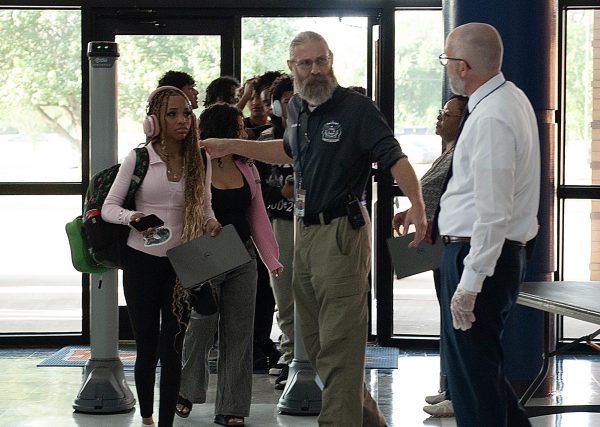AP classes: pro’s and con’s

College is something that is always on a high schooler’s mind. Preparing for college is an extremely stressful time. The hardest part about it is choosing the right classes for you. Blackman offers classes varying from standard, honors, and AP (Advanced Placement).
In Tennessee, instead of having a weighted GPA, you have added points to your class average. An honors class will add three points to your end-of-semester grade, and an AP class will add five points to the grade.
Because of these grade changes, the work will be significantly more difficult, and there will be more of it. However, you will likely get more out of the class, depending on the type of student you are.
“I like the beneficial aspect of [AP classes], in which I can earn college credit and also raise my GPA with five extra points in each class. The teachers are great too. I’ve never had an AP teacher who wasn’t helpful, and I’ve enjoyed the atmospheres of each classroom. I learn more in AP classes than in regular honors or BCA classes too,” said Rachel Keidel, junior.
If you take multiple AP classes in one school year, you will have to be capable of balancing extracurriculars, schoolwork, and home life, due to the extra work.
Towards the end of the year, during finals season, you will have to study for the AP test. The AP test will be much harder than normal finals, as the College Board (the company that makes and administers the test) requires certain answers in order to get the question correct.
The hardest part about AP classes is allowing yourself to have free thought about the subject but having to conform those thoughts to the way you must answer on the test. Because of these parameters, not only do you have to study the material you learned throughout the year, but you also have to study how you will put the information in the answer.
The largest part of AP classes is Advanced Placement test at the end that can earn you college credit, depending on your score; this test costs around $94, depending on where you live. While many students cannot afford this, there is an exam fee waiver that will bring the cost down to around $20 in Tennessee. Even with this waiver, it makes students hesitant to take the class.
“$94 is a big chunk of money. I try to tell them that in a college class, three credits are going to cost them about $300 per credit or close to $900. So, you have to weigh the cost benefit of $94 now, $900 later,” stated Michele Giacobbi, AP Human Geography and AP Government teacher.
While AP classes can prepare you for more prestigious colleges and their work difficulty, attending a state or community college will not make your AP knowledge worth nothing. It will assist you in discussions and everyday life as an educated human being.
“I have [had] students who have gone to some of the most prestigious institutions in this country. I have also had students go to our community colleges. However, their conversations as global citizens are richer because of their AP experiences,” said Elisa Burks, AP Literature teacher.
The majority of AP students are already involved in multiple extracurricular activities that take up most of their time. Time management is crucial to complete an AP class with a good grade. There are a variety of ways to manage your time sufficiently, such as getting rid of some extracurriculars you are involved in, starting on your work as soon as you arrive home, and using any spare time you have at school.
“I usually don’t have much time to do my work at home because of my participation in theatre, so I use all my Impact time to get my work done,” stated Sarah Hall, junior.
AP classes, like all things, have upsides and downsides. If you are a dedicated student who wishes to be challenged, AP classes are beneficial. If you are a student that is focused more on their extracurriculars, AP classes could end up stressing you out.
The classes take you will be most beneficial to you depends on what kind of student you are.

I’m a senior, and my pronouns are she/they. My hobbies are gaming, listening to music, and hopefully reading (I’m getting back into it again). My favorite...

I'm just here for a good time not a long time. Favorite bands are grateful dead and Arctic Monkeys, and some of my favorite rappers are Trippie Red and...











